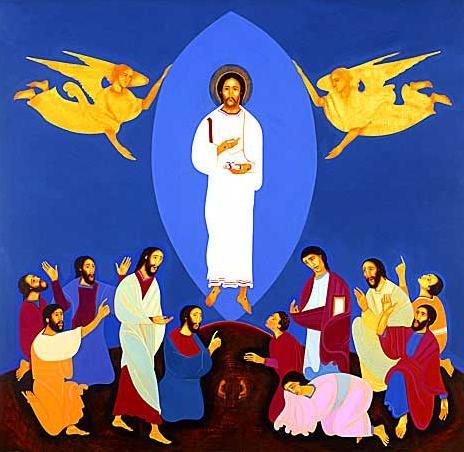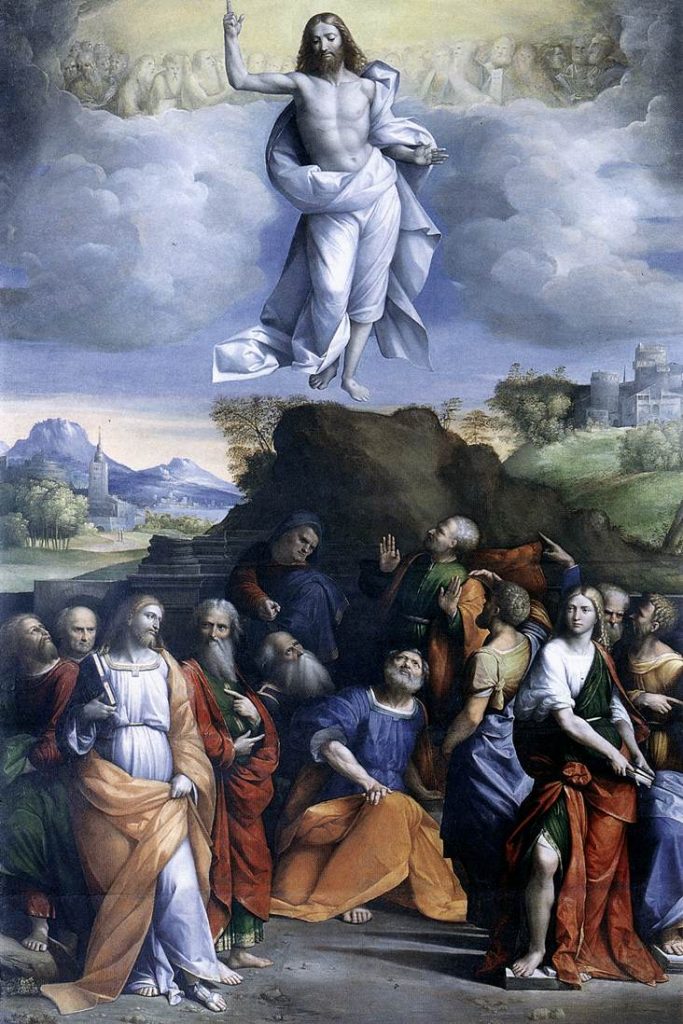I had been a hospital chaplain for a couple of weeks when I stopped in my tracks after exiting an elevator. I felt something. What was it? Not unpleasant. After a quick self-assessment, I figured it out: happiness.
I had not anticipated this. In the weeks leading up to my mid-November start, I was preoccupied with drawing my time at a small downtown church to a close. But nearly every day at the hospital was filled with wonders.
One evening, while I was going over the day’s wonders with my wife, she responded, “You know what? I think I’d be good at that job.”
“Yeah,” I said, “you’d be great at it!”
It is hard to overstate how profound that moment was. Jenn had loved her last job. Mosaic Health and Healing Arts was a healthcare provider dedicated to serving the LGBTQ+ community, and Jenn was its sole therapist. Then, for unclear reasons, the founders abruptly changed course. Ultimately, Mosaic closed its doors and the founders moved to Canada. A year and a half after being terminated, Jenn had not found anything that interested her—until our conversation on the couch.
The hospital happened to need a part-time chaplain. Thrilled by their interview, my manager offered her the job.
This also generated a feeling. Also not unpleasant.
Before sharing more, you should know something about me: I have never claimed that God has “laid this [or that] on my heart.” I find a lot of that talk passive-aggressive. When I’ve been asked about my “call to ministry,” I’ve been content to say I had a particular set of skills and a desire to use them, the same way God calls people to law or subsistence farming or graphic design. But this time I had a feeling–a feeling that God had orchestrated all this. For me, for her, for us.

Jenn was scheduled to attend orientation the last Monday of January. The Thursday morning before that, I had a brief, tense interaction with my manager. She stormed out of the meeting, so I figured we would work it out when we met again after lunch. But she did not come to that meeting.
In fact, I never saw her again. She called later to fire me.
Human Resources sent me her account of the incident. Very little of her account would withstand mild scrutiny, but I was still in the “introductory period” of my job. I was two weeks shy of having any recourse.
Jenn’s job offer was then rescinded.

I am reminded of a passage from Par Lagerkvist’s The Dwarf, which compares our fate to that of a falcon on the leash of a falconer. The hood comes off, exposing the falcon to a limitless sky, and the falcon spreads its wings and takes flight. For a while there is joy and freedom, but eventually the bird feels the tug of the falconer’s leash. The falcon is capable of flying higher but cannot. The book says,
What use are wings when they can never be spread? They become a burden instead of a release. They weigh us down, we trail them and finally we hate them. And it comes as a relief when the falconer wearies of his cruel play and draws the hood over our head so that we no longer have to see anything.
I first encountered that quote as a young preacher and used it as an illustration for a sermon on the Exodus. (Turning to see Pharaoh’s forces in pursuit, Israel cried out, “Hadn’t we said, ‘Let us alone and let us serve the Egyptians’?” Hadn’t we said we preferred the hood?) At that time, yes, life was still open-ended. But the possibilities! So much potential.
A quarter-century later, it all just feels open-ended. Most of the possibilities I consider are things I try to avoid with medication and exercise. While it made a nice sermon illustration back then, the truth of it hits harder now.
On Good Friday, the disciples witnessed Rome’s attempt to bring an end to a story the disciples had thought was divinely orchestrated. Easter Sunday proved that the story was far more unresolved than the events of Good Friday had led them to believe. When, forty days later, Jesus instructed them to gather outside Jerusalem, they had recalibrated and, before Jesus said anything, asked, “’Lord, is this the time when you will restore the kingdom to Israel?’” Had the time come to bring this open-ended story to its grand resolution?

But that was not why Jesus called the meeting. They were gathered to witness his ascension. Staring into the sky, their attention only returned to Earth after a couple of white-robed figures appeared and asked, “Men of Galilee, why do you stand looking up toward heaven?”
To stop looking would require them to confront the open-endedness, to look at one another and ask, “So now what?”
I once asked the New Testament scholar David McCabe how long he thought Jesus kept going up. He suggested my question missed the point. He said that Luke was not describing how Jesus took care of a logistical matter (travelling from Earth to heaven). Jesus was enacting a ritual—having defeated the forces of sin and death, Jesus had earned the right to assume the throne. This was not an exit; it was an ascension.

That is a helpful distinction. However, after two thousand years of Jesus-less sky, it can feel like a distinction without a difference. For a place supposedly under divine reign, life on Earth is so open-ended and unresolved.
Rather than warn his disciples about this, Jesus tells them to anticipate the Holy Spirit. In other words, the power that operated in him to bring about his victory will operate in them to bear witness to it.
We tend to look to the miraculous for evidence of that power operating in him. When he exorcises demons, raises the dead, he is planting a flag for the kingdom. Circumstances are changed to reflect the grand resolution, the happy ending in which heaven and earth reconcile.
But that is not the only way the Holy Spirit operates in Jesus. In the garden, Jesus prays that circumstances might change. “If it be your will, take this cup from me.” But that is not how the Spirit will operate in him. Evil will orchestrate his circumstances. Evidence of the Holy Spirit is found in his defiance of those circumstances. The forces of darkness can make him their victim but not their slave.
Now and again, l feel the dark allure of life under the falconer’s hood. I am embarrassed how easily, for example, YouTube’s algorithms lobotomize me. Trick shots, comedy bits, highlight reels, political commentary lull away an hour. Two. This is what it means to be “a consumer,” a being that has no concern for circumstances beyond the satisfaction of appetites.

I do not see a Divine hand orchestrating my circumstances, but I am learning to live with that. I am trying to see my willingness to live with that as itself evidence of the Holy Spirit. My determination to resist the falconer’s hood and live with open-endedness is my link to Jesus. By no means am I putting my experience on par with his or others’ going through much worse. But I don’t want to diminish my experience either. Something of what operated in him operates in me. Frankly, I find that empowering.
It keeps me from standing there, scanning an empty sky for Jesus. I know where he is. I feel it.
Open sky photo by Philipp Potocnik on Unsplash


6 Responses
I liked the title. It could be a series:” looking for Jesus after being mentally ill: being retired, being a prisoner, being stage four cancer, etc. I sucked in my breath, and started to read.By the end I saw myself as one who is tempted to wear the Falcon’s hat. Your article encouraged me to both recognize and resist the power of temptation to wear the hat.
Thank you for this honest and insightful reflection!
I feel badly for your sense of God leading and then pulling the rug out from under you, but am glad you are sensing God’s Spirit at work in your willingness to press on in faith anyway. I’m wondering if you could share further your perspective on being reluctant to talk about God’s call because it would come across as a “passive-aggressive” statement.
Thanks, David. I could have been clearer. I’m thinking of pastors who, for example, claim that God is leading the church to undergo a building campaign. That strikes me as a passive-aggressive way of shutting down dissent.
I don’t think vocational ministry should be treated like it’s a qualitatively different type of discernment process from other vocations. The phrase “a higher calling” makes me uneasy– not unless we’re talking about how people pursue their calling as opposed to what calling their pursue. Anyone who utilizes their God-given gifts for the common good has a “higher calling.”
Thanks, Mark. I understand and agree with what you’re saying. It’s never good to shut down dissent by claiming you have an inside track to divine wisdom. Although I have always liked an old Jesus freak song that said, “I’ve got connections you wouldn’t believe – I know the king.” That’s true as long as we acknowledge all believers have this wonderful connection. That always puts a little smile on my face.
I appreciated this a lot – thanks for your thoughtful writing. That falcon metaphor will definitely stay with me!